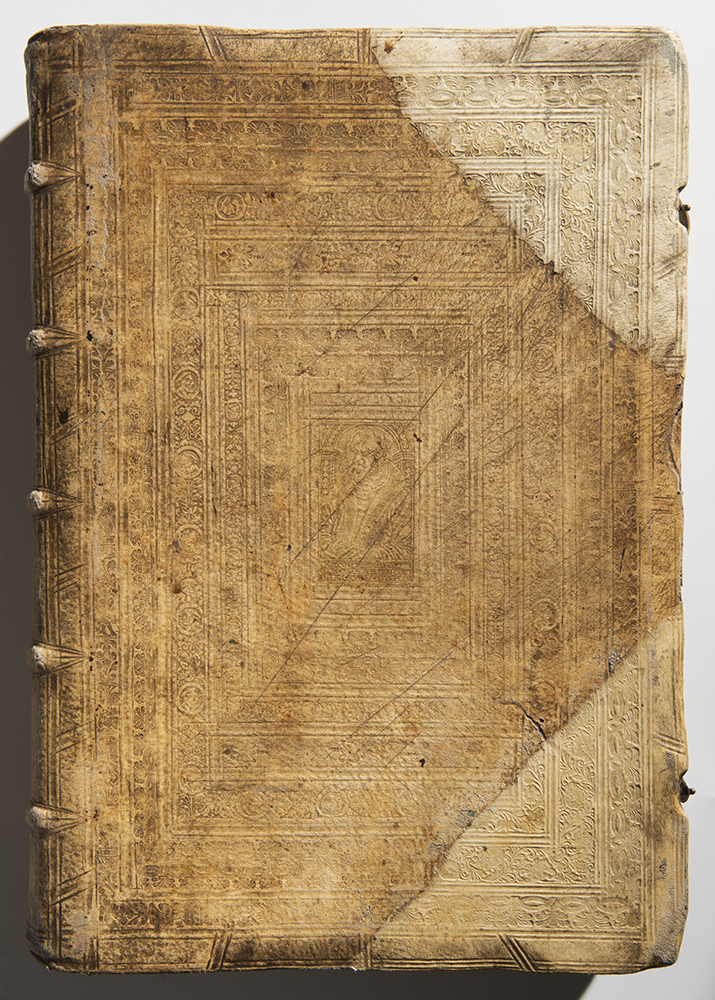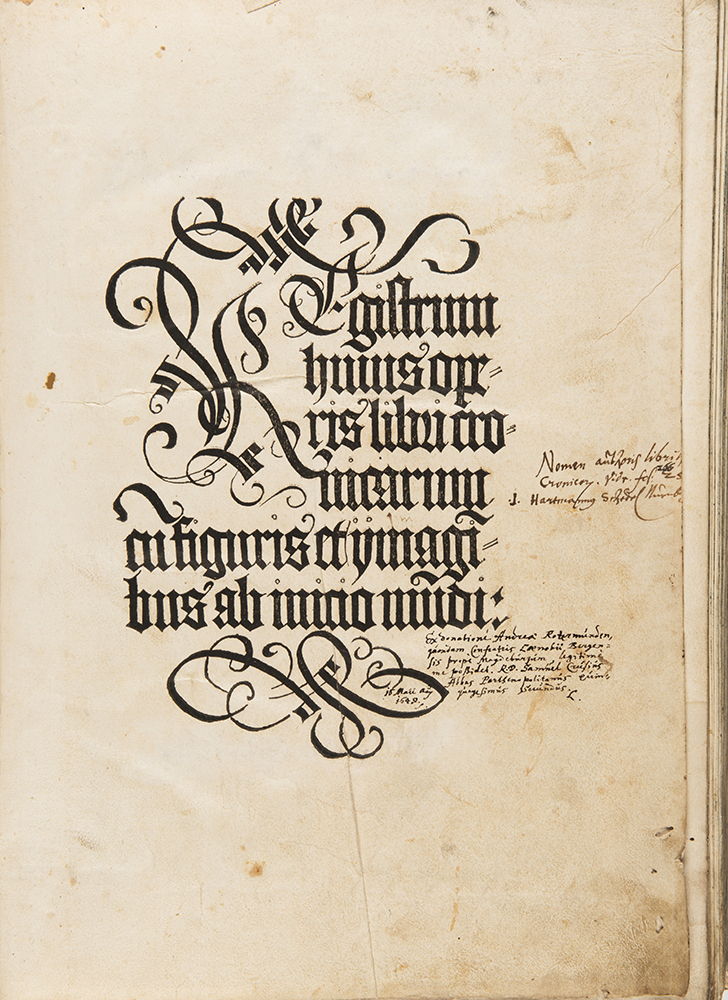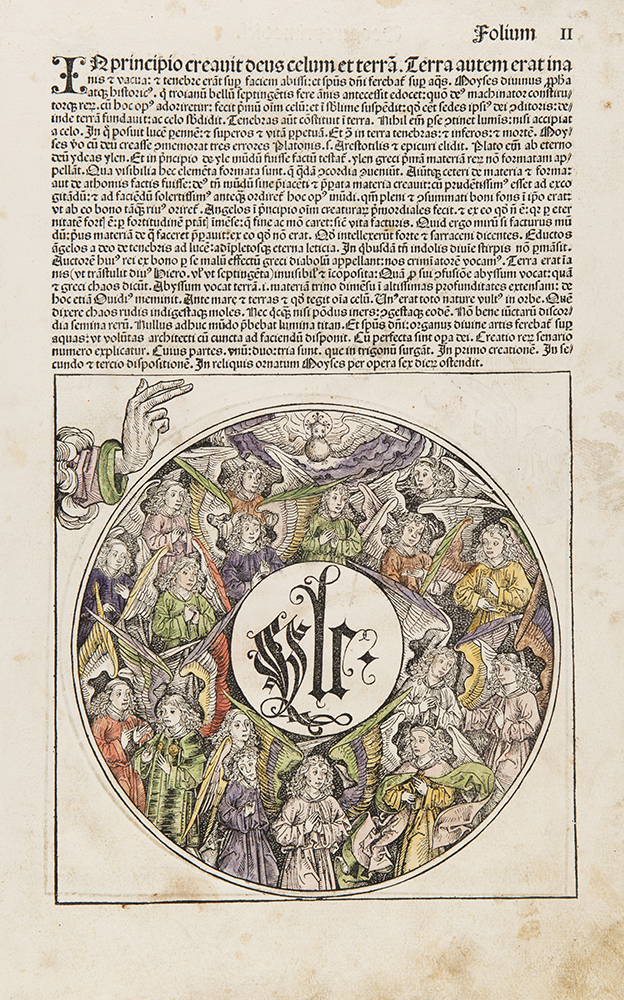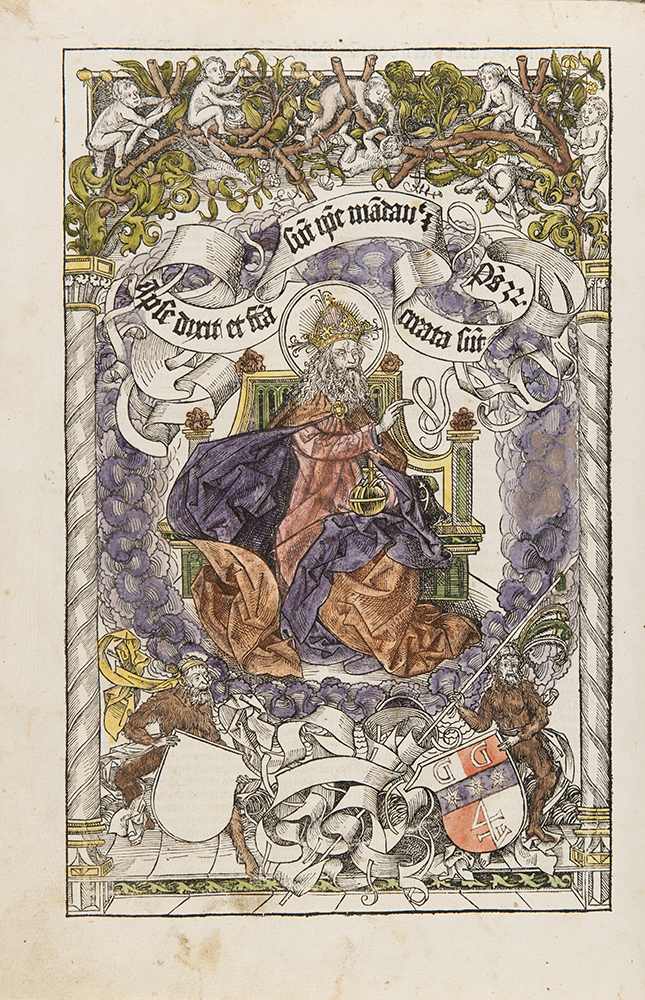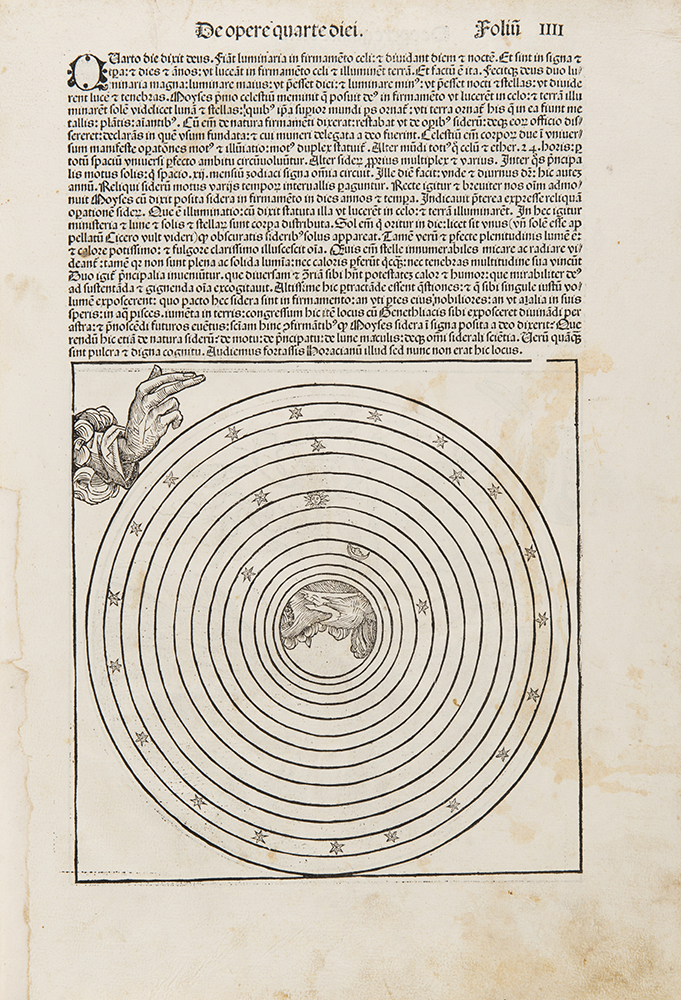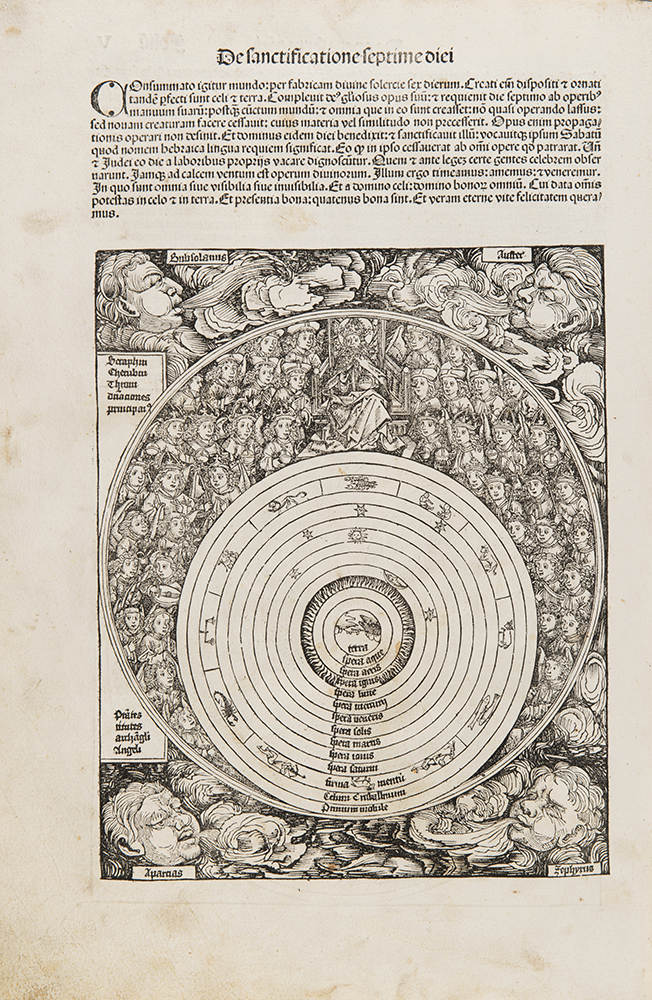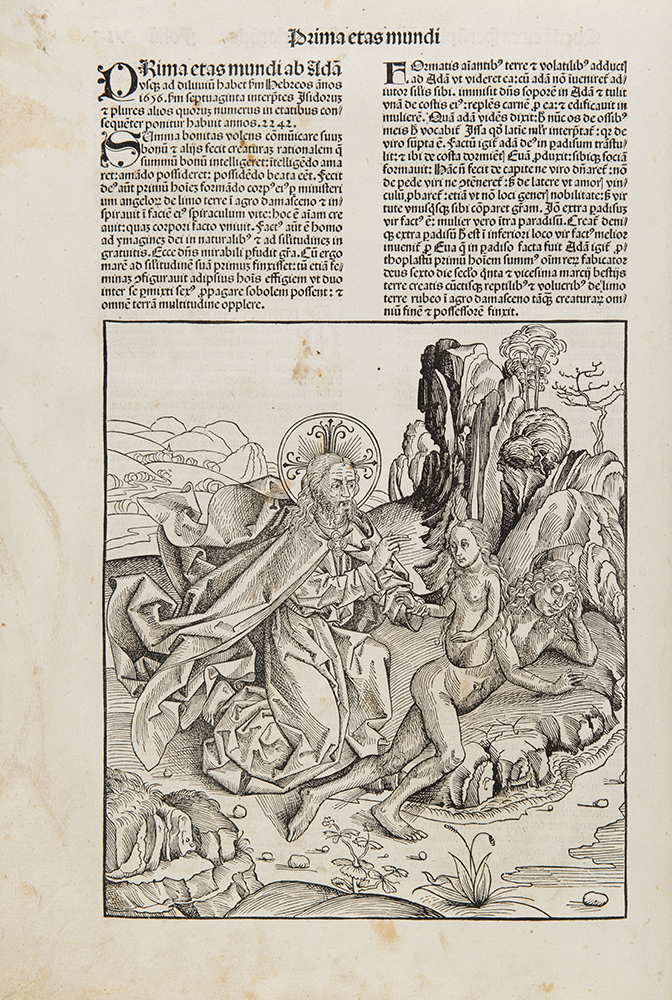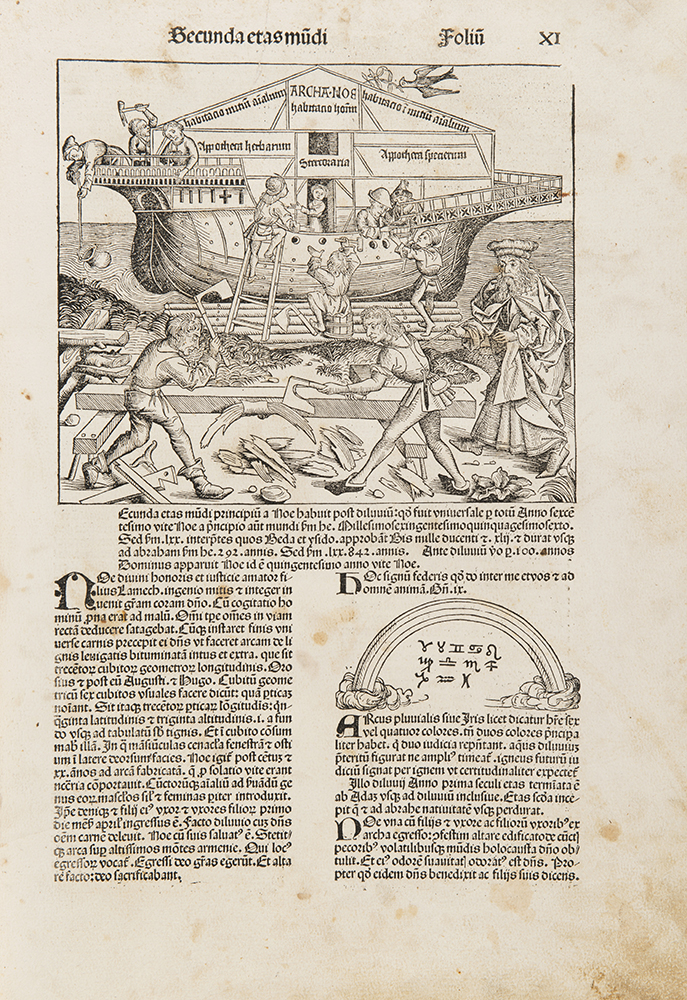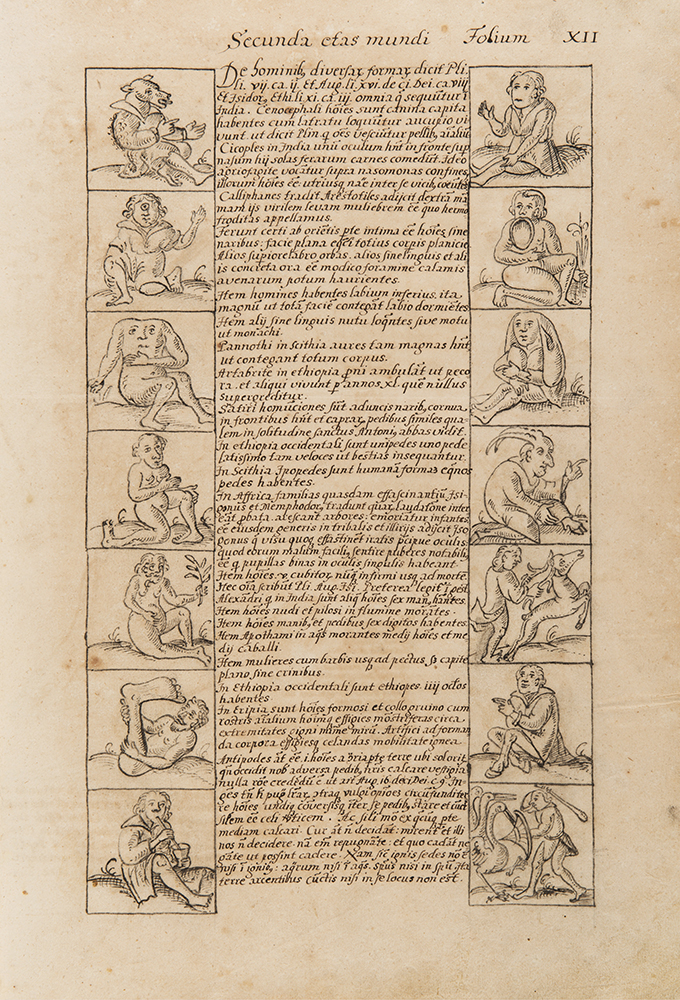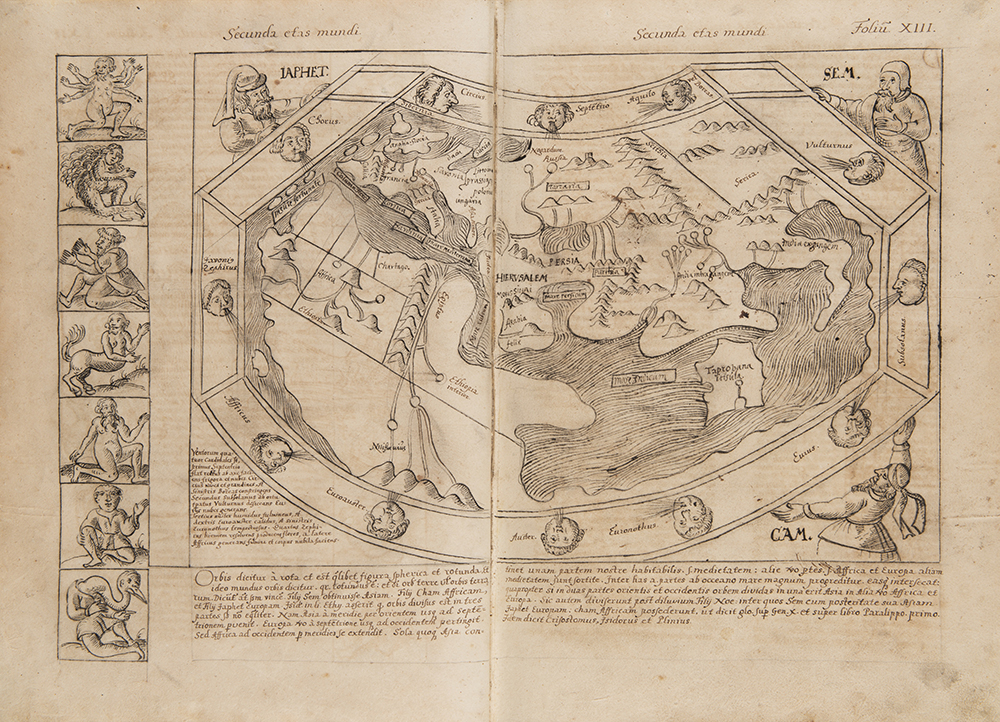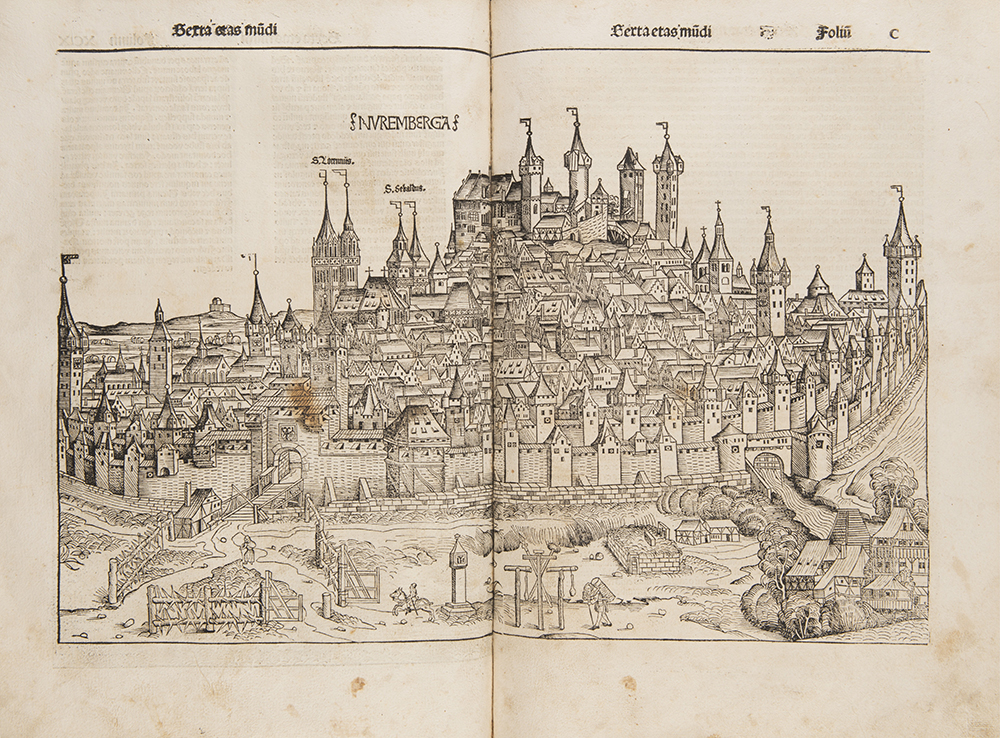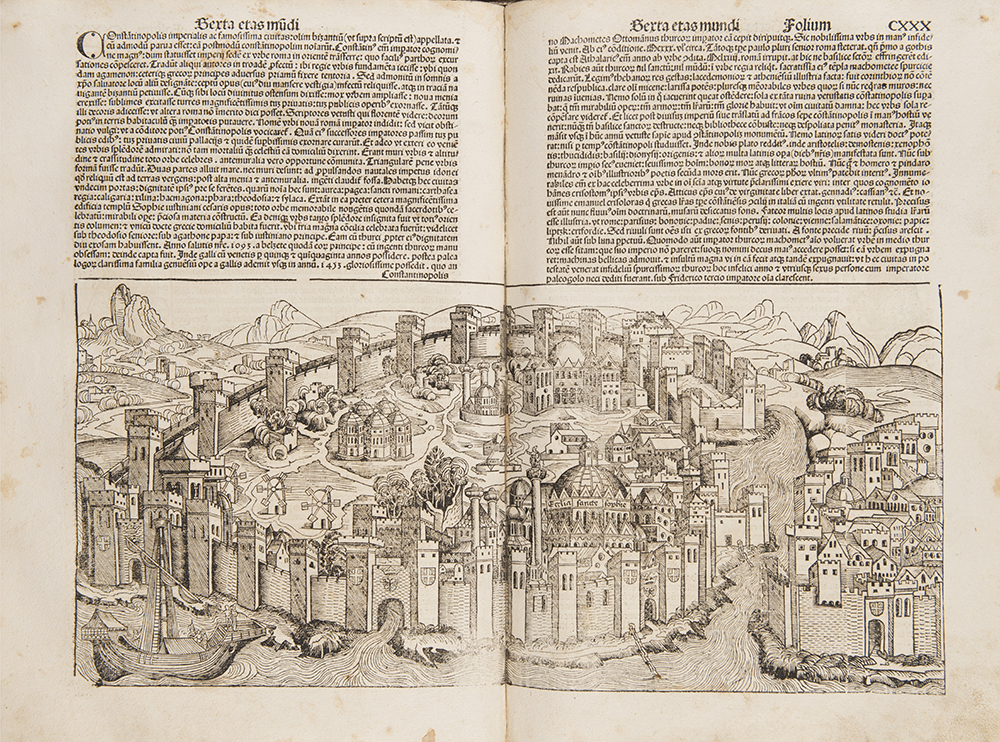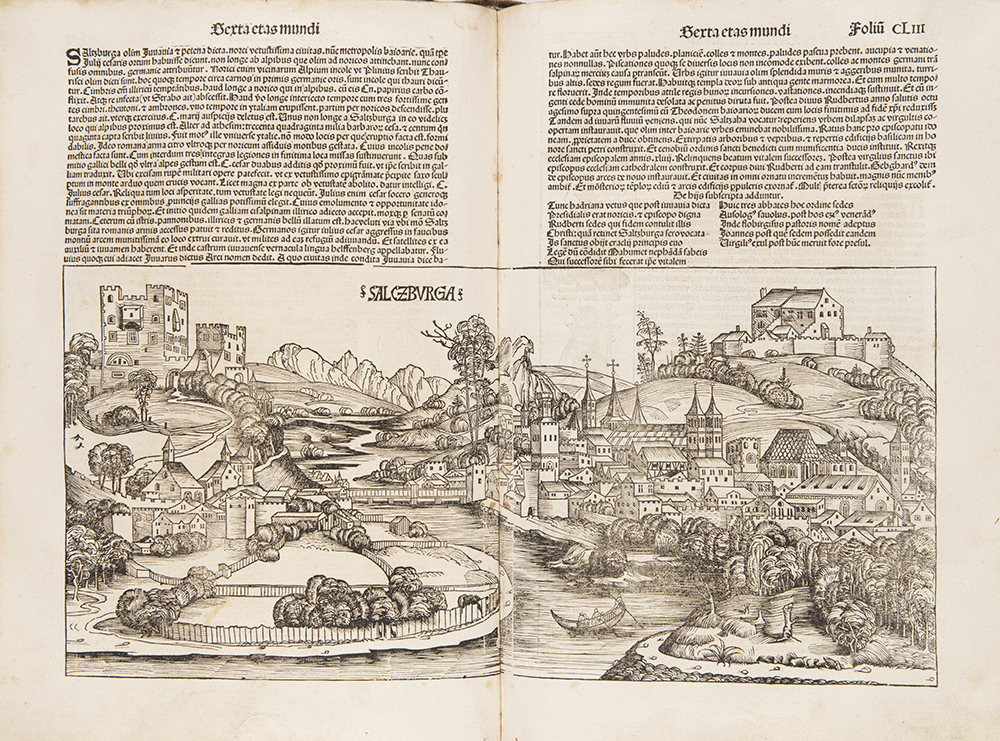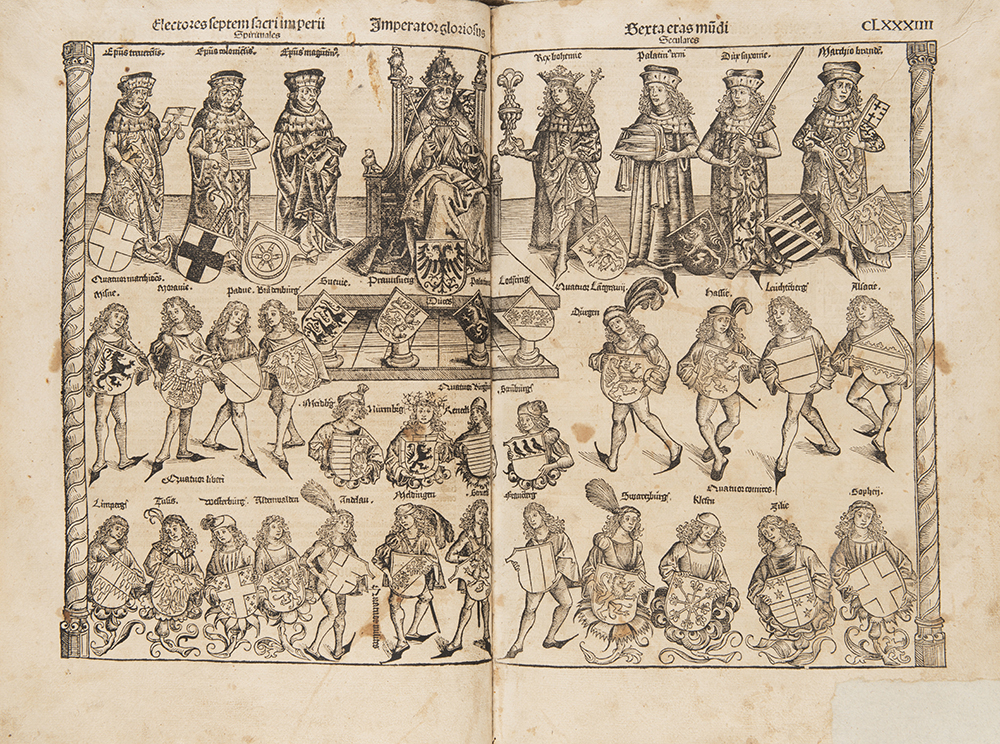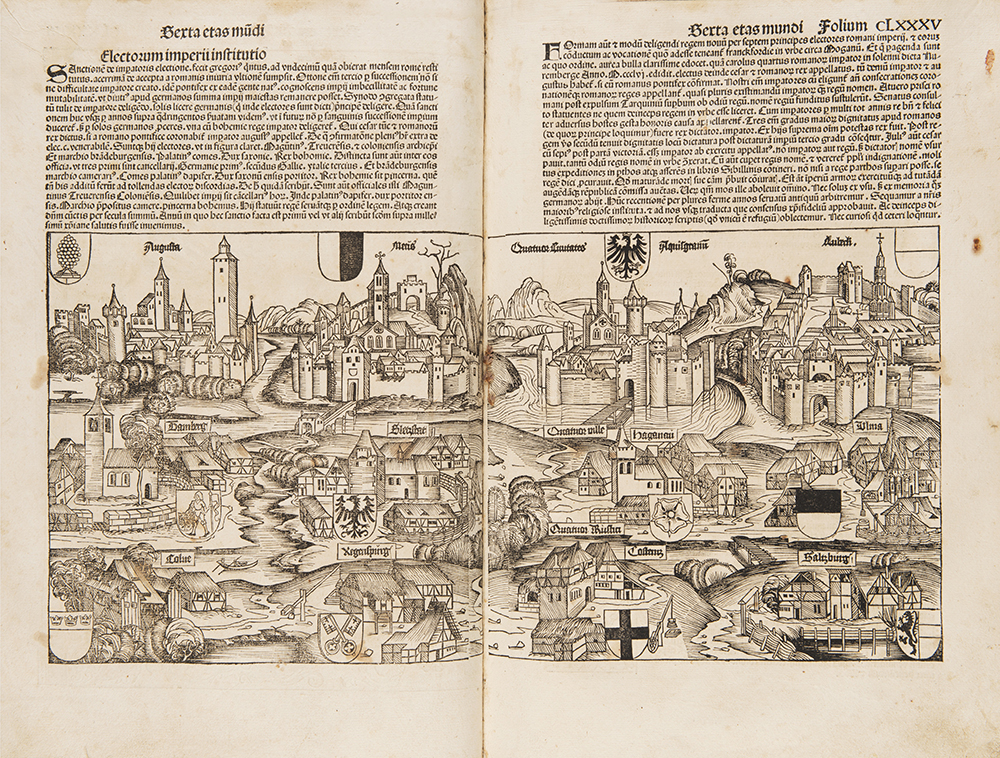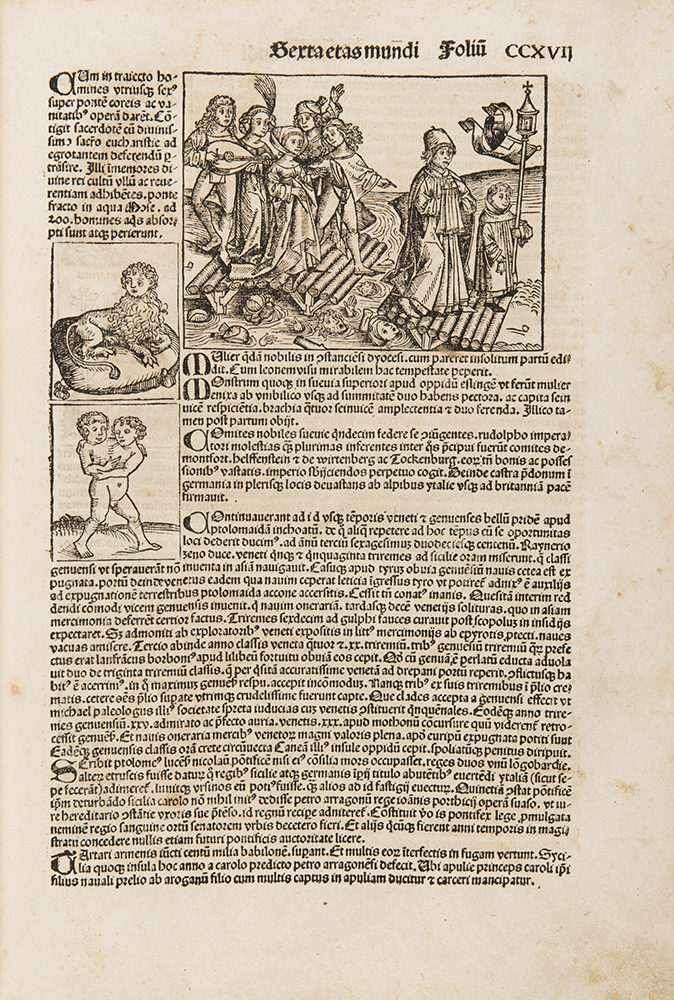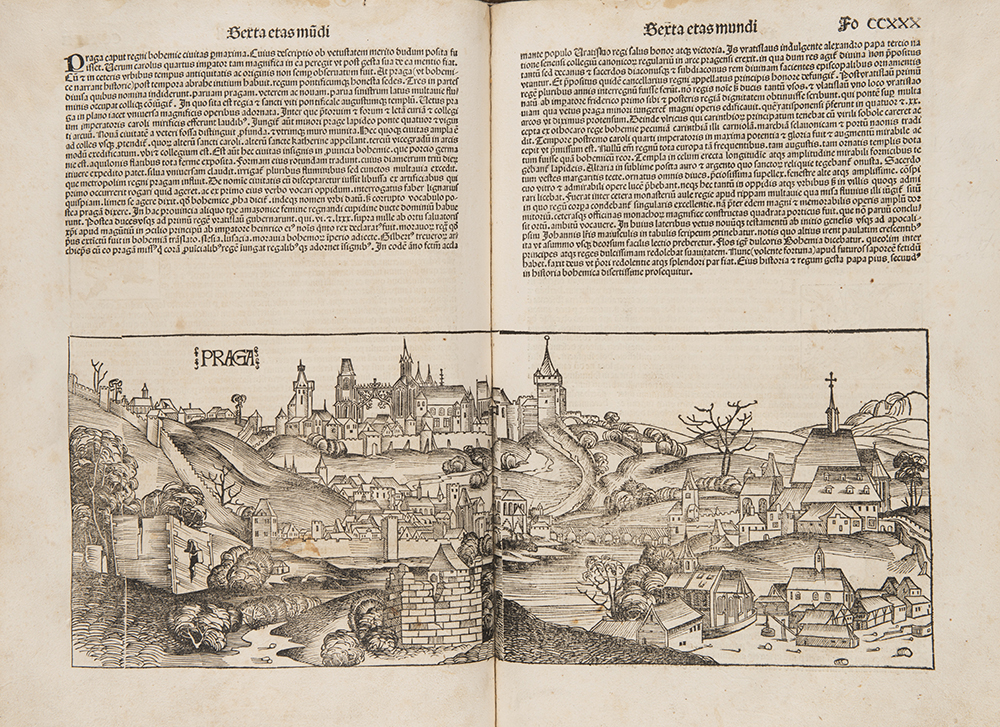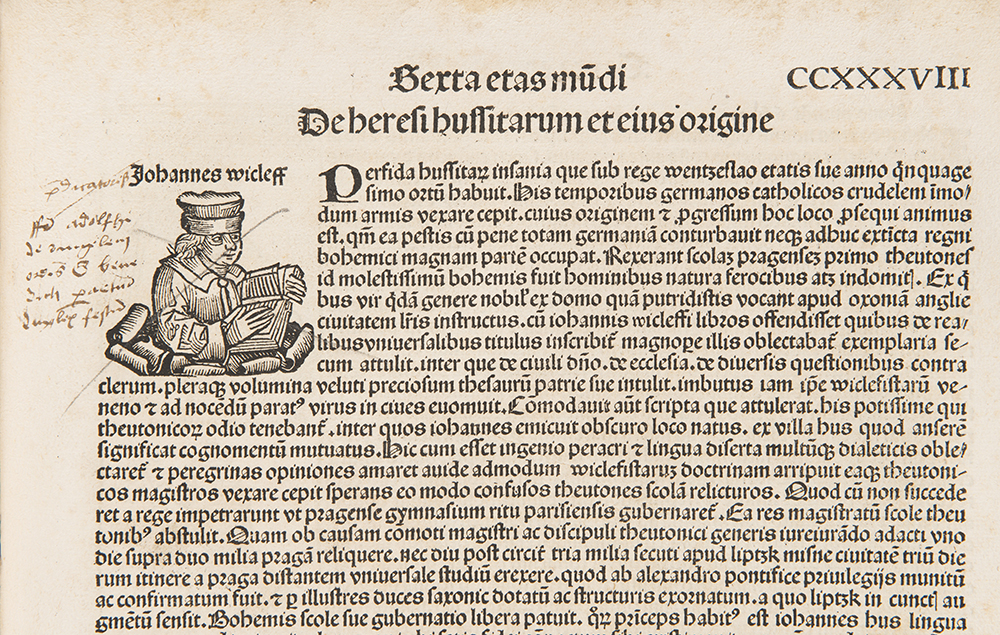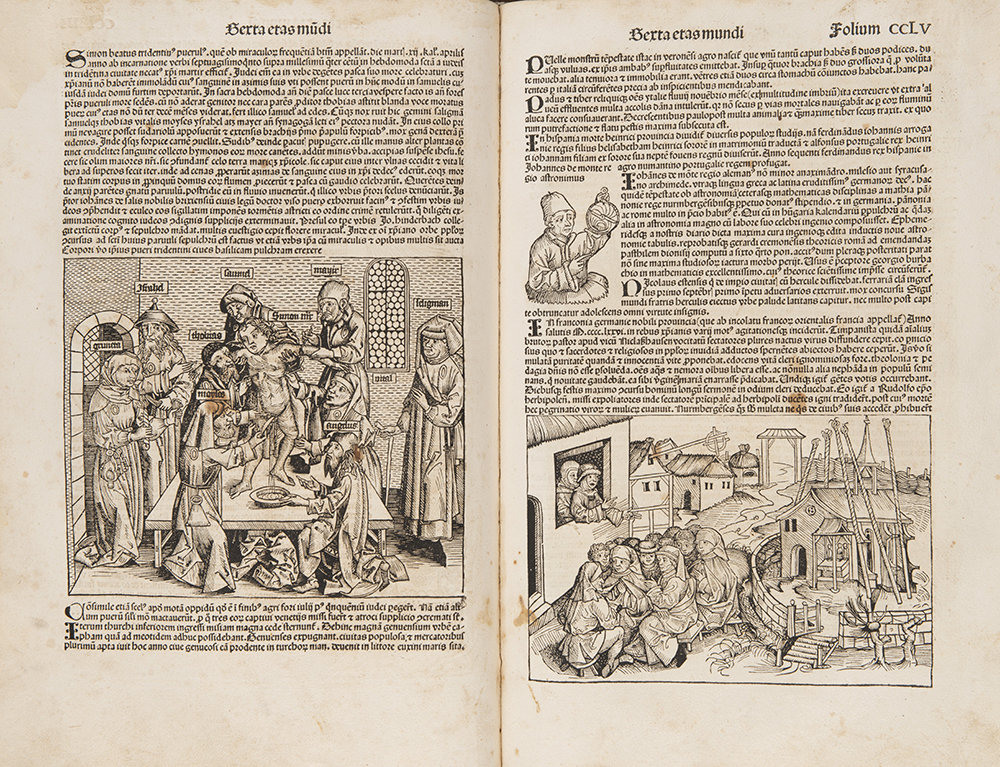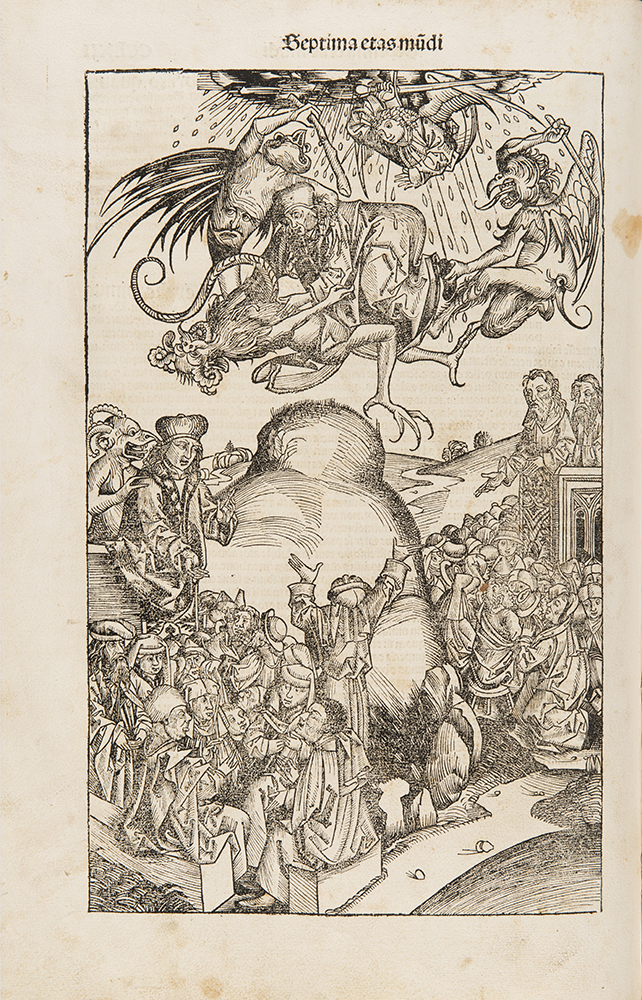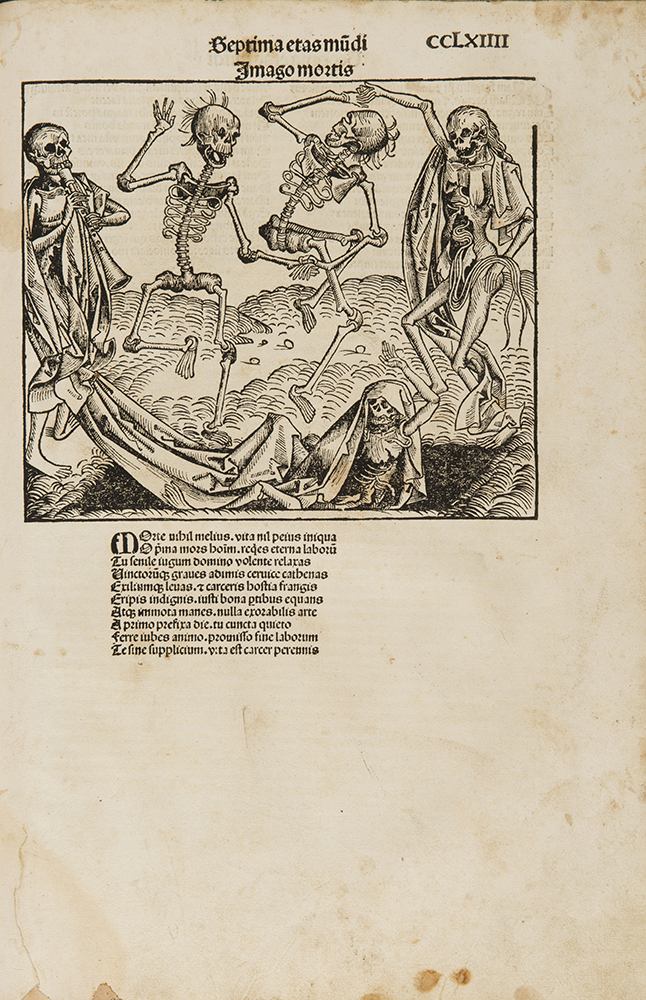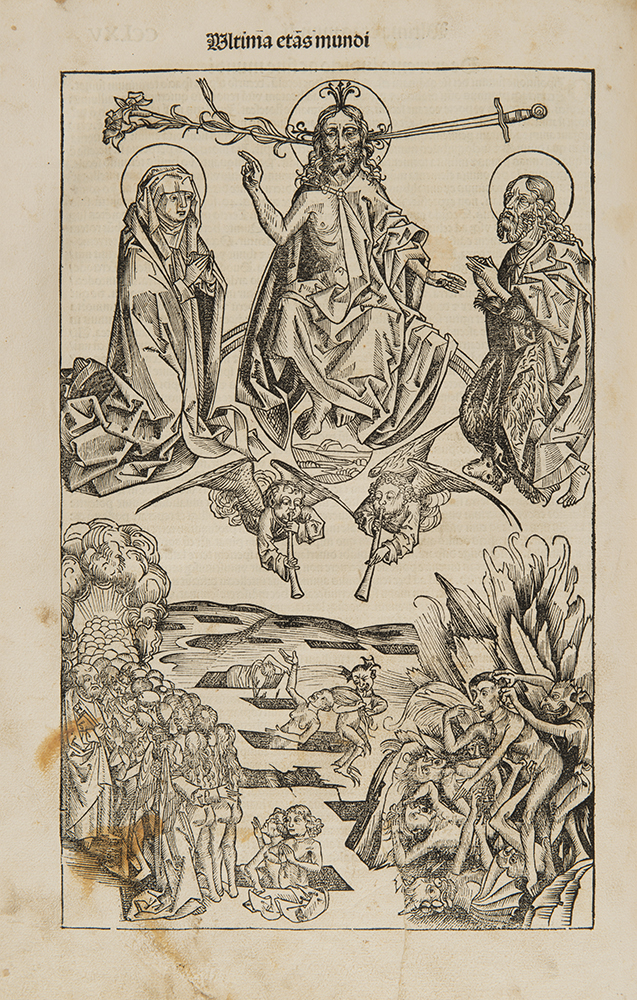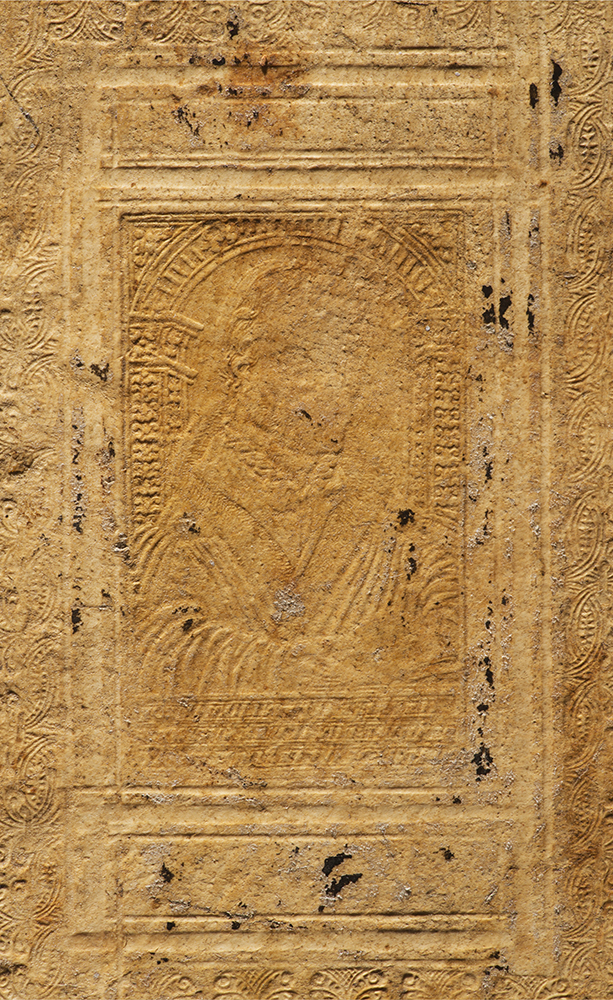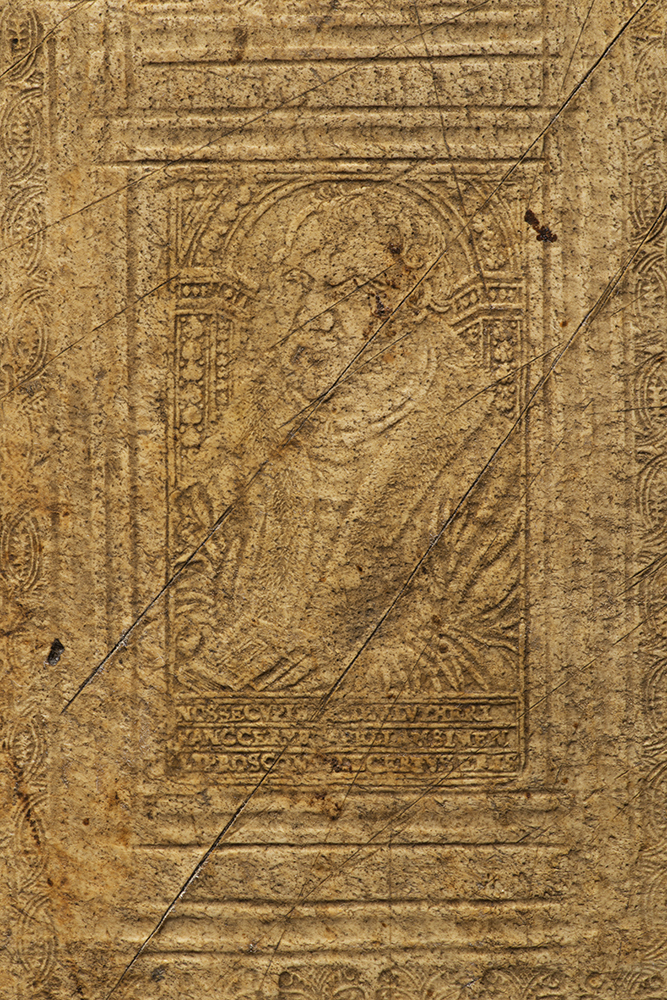2
HARTMANN SCHEDEL (1440-1514): LIBER CHRONICARUM (THE NUREMBERG CHRONICLE)
/ 16th century, Germany, Nuremberg / 47 x 33 x 9,5 cm
Liber Chronicarum, also known as the Nuremberg Chronicle, is an illustrated biblical paraphrase and world history that follows the story of human history related in the Bible. It includes the histories of a number of important cities. This Latin version was written by Hartmann Schedel. A second copy, which appeared four months later in 1493, is the German version translated by Georg Alt. It is estimated that 1,400 to 1,500 Latin and 700 to 1,000 German copies were published. Liber Chronicarum is one of the best-documented early printed books and is an incunabulum – one of the first to successfully integrate illustrations and text. This unique chronicle features a Renaissance rebinding and contains woodcuts by important artists, including Albrecht Dürer and Michael Wolgemut. The author, Hartmann Schedel, was a physician, humanist and book collector. He received his doctorate in Padua, Italy, in 1466 before settling in Nuremberg to practice medicine and collect books. According to an inventory conducted in 1498, Schedel's personal library contained 370 manuscripts and 670 printed books. When writing the chronicle, Schedel drew on passages from classical and medieval works from his collection – often from another humanist chronicle, Supplementum Chronicarum, by Giacomo Filippo Foresti da Bergamo. It has been estimated that about 90% of the text is based on works on humanities, science, philosophy, and theology, while about 10% of the chronicle is Schedel's original composition. The publisher and printer was Anton Koberger, the godfather of Albrecht Dürer and most important printer and publisher in Germany at the time. Latin scholars refer to the book as "Liber Chronicarum," as this phrase appears in the Latin edition. English-speakers have long referred to it as the Nuremberg Chronicle after the city in which it was published. German-speakers refer to it as "Die Schedelsche Weltchronik" (Schedel's World History) in honor of its author. Full leather binding over wooden boards, bound with five raised double bands, richly decorated with blind tooling, portrait of Martin Luther with a book on the front cover, corner metal mounts not preserved, one clasp complete, second clasp incomplete, blue edging. No conservator's interventions. 20 unnumbered leaves, 298 numbered leaves, over 1,800 woodcuts in the text by Wolgemut and Wilhelm Pleydenwurff. Leaves 12 and 13 are replaced with period manuscript and faithful pen and ink drawings; first several woodcuts are colorized; leaves 259 – 261 and 298 are missing. Ownership inscription on first leaf.
/ 16th century, Germany, Nuremberg / 47 x 33 x 9,5 cm
Liber Chronicarum, also known as the Nuremberg Chronicle, is an illustrated biblical paraphrase and world history that follows the story of human history related in the Bible. It includes the histories of a number of important cities. This Latin version was written by Hartmann Schedel. A second copy, which appeared four months later in 1493, is the German version translated by Georg Alt. It is estimated that 1,400 to 1,500 Latin and 700 to 1,000 German copies were published. Liber Chronicarum is one of the best-documented early printed books and is an incunabulum – one of the first to successfully integrate illustrations and text. This unique chronicle features a Renaissance rebinding and contains woodcuts by important artists, including Albrecht Dürer and Michael Wolgemut. The author, Hartmann Schedel, was a physician, humanist and book collector. He received his doctorate in Padua, Italy, in 1466 before settling in Nuremberg to practice medicine and collect books. According to an inventory conducted in 1498, Schedel's personal library contained 370 manuscripts and 670 printed books. When writing the chronicle, Schedel drew on passages from classical and medieval works from his collection – often from another humanist chronicle, Supplementum Chronicarum, by Giacomo Filippo Foresti da Bergamo. It has been estimated that about 90% of the text is based on works on humanities, science, philosophy, and theology, while about 10% of the chronicle is Schedel's original composition. The publisher and printer was Anton Koberger, the godfather of Albrecht Dürer and most important printer and publisher in Germany at the time. Latin scholars refer to the book as "Liber Chronicarum," as this phrase appears in the Latin edition. English-speakers have long referred to it as the Nuremberg Chronicle after the city in which it was published. German-speakers refer to it as "Die Schedelsche Weltchronik" (Schedel's World History) in honor of its author. Full leather binding over wooden boards, bound with five raised double bands, richly decorated with blind tooling, portrait of Martin Luther with a book on the front cover, corner metal mounts not preserved, one clasp complete, second clasp incomplete, blue edging. No conservator's interventions. 20 unnumbered leaves, 298 numbered leaves, over 1,800 woodcuts in the text by Wolgemut and Wilhelm Pleydenwurff. Leaves 12 and 13 are replaced with period manuscript and faithful pen and ink drawings; first several woodcuts are colorized; leaves 259 – 261 and 298 are missing. Ownership inscription on first leaf.
EVENING AUCTION 2017
Sale Date(s)
Venue Address
For Arthouse Hejtmánek delivery information please telephone +420 776 210 002.
Important Information
WHERE
ARTHOUSE HEJTMÁNEK
Gallery and Auction house Ltd.
Goetheho 2
160 00 Prague 6
Czech Republic
WHEN
Preauction Exhibition: 16. – 29. 11. 2017 / 10.00 – 18.00
Auction: 30. 11. 2017: entry from 5 pm, start at 6 pm
REGISTRATION
You can register by filling out the registration form:
- ONLINE
- IN PERSON
You can register during the pre-auction exhibition 16.– 29. 11. 2017 with one of our employees - BY EMAIL
By filling out the registration form and sending it with a copy of your personal identification card or passport to email: reg@arthousehejtmanek.cz or fax: +420 222 264 881
WHAT TO LOOK FORWARD TO
We cordially invite all art lovers to our special Evening Auction held regularly each year at our gallery, Arthouse Hejtmánek in Prague–Bubeneč. The auction will be held in the winter garden adjacent to the gallery on Thursday, November 30, 2017 from 6pm.
We will auction extraordinary works of art, antiques and design from the 14th century to the present.
There will be many surprising items that will touch and excite any collector - please inspire yourself seeing our preauction video of the exhibition and lots here.

















































